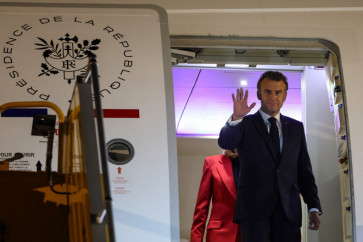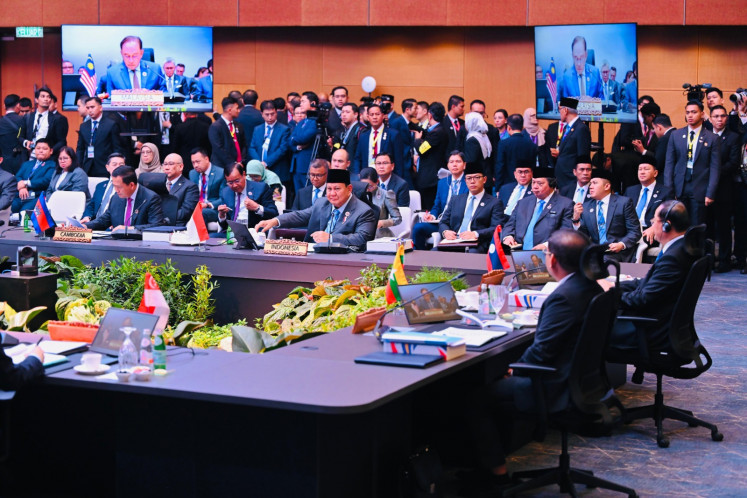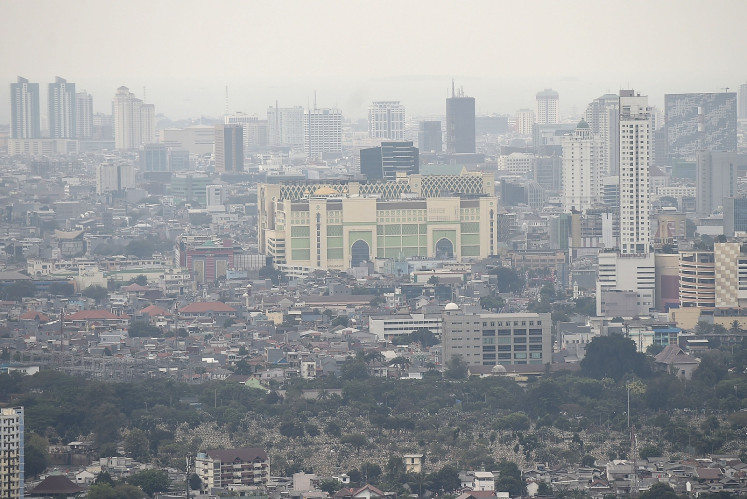Hyundai opens new plant to produce Indonesia’s first locally assembled electric car
Jokowi said the government was providing incentives and had removed the red tape to try to boost investment in EV development.
Change text size
Gift Premium Articles
to Anyone

H
yundai Motor Group launched a new automotive plant on Wednesday that will produce Indonesia's first locally assembled electric vehicle, part of President Joko “Jokowi” Widodo's goal of developing a full electric vehicles (EV) supply chain utilizing the country's mineral resources.
At the plant's inauguration on Wednesday, Jokowi said the government was providing incentives and had removed the red tape to try to boost investment in EV development.
"We need to be an important player in the global supply chain of electric cars," he said. "Our country has large mineral resources that can be used for the development of electric cars."
Indonesia is a major nickel ore producer, an important material for EV batteries.
It also produces cobalt, also used for batteries, and has large deposits of bauxite and copper ores, which can be used for EV production, Jokowi said.
Downstream development of Indonesia's natural resources has been one of Jokowi's key economic goals to lure foreign investment and create jobs.
By 2024, all EVs produced in Indonesia will use locally made batteries and other key components, he added.
Hyundai in 2019 said it would invest US$1.55 billion up to 2030, with starting capacity of 150,000 vehicles per year, to be later expanded to 250,000 annually.
The group's chairman, Chung Eui-sun, said the new plant would also be linked with a Hyundai-LG joint venture battery plant, which is scheduled to open in 2024.
LG Energy Solution (LGES) and Hyundai started construction of the $1.1 billion EV battery plant in September 2021, which at its full capacity is expected to produce 10 gigawatt-hours of battery cell power.
Within the country, conglomerates and start-ups alike are strengthening their grip on the green transportation industry by engaging in the manufacture and procurement of electric vehicles (EV) for their businesses.
PT Vektr Mobiliti Indonesia (VKTR) became the latest company to tap into the industry when it announced last month that it would manufacture electric buses (e-buses) in collaboration with local carrosserie manufacturer Tri Sakti and top Chinese EV producer BYD Auto.
VKTR is a spin-off of PT Bakrie Autoparts, an automotive component subsidiary of Bakrie and Brothers (BNBR), a conglomerate with businesses in mining, construction, agriculture, manufacturing, trade and other sectors.
Other conglomerates in the automotive distribution segment, namely Indika Group, PT Astra International and the massive Salim Group, have also entered the EV industry.
Indika’s coal mining arm, Indika Energy, established PT Electra Mobilitas Indonesia (EMI) last year to develop electric motorcycles and the required ecosystem, such as energy storage systems (ESS), battery swap stations and EV research and development facilities.
Indika Energy has also inked an investment deal with Taiwan-based companies and the Indonesia Battery Corporation worth $8 billion to develop Indonesia’s EV ecosystem.
Salim Group, which holds a majority stake in PT Nissan Motor Distributor through its automotive subsidiary PT Indomobil Sukses Internasional (IMAS), has been selling the Nissan Leaf electric car since August last year.
Meanwhile, Astra International, through PT Toyota Astra Motor, introduced electric cars back in 2009 with the launch of the Toyota Prius.
Fitch Ratings predicted in December 2021 that some 900,000 four-wheeled vehicles would likely be sold in Indonesia in 2022. The predicted figure would mark an improvement from the estimated 850,000 sold in 2021.









